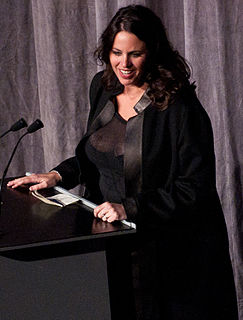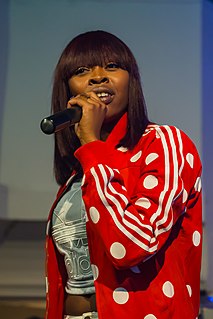A Quote by Yann Martel
So you want another story?" Uhh... no. We would like to know what really happened." Doesn't the telling of something always become a story?" Uhh... perhaps in English. In Japanese a story would have an element of invention in it. We don't want any invention. We want the 'straight facts,' as you say in English." Isn't telling about something--using words, English or Japanese--already something of an invention? Isn't just looking upon this world already something of an invention?
Related Quotes
I heard "romantic comedy about the invention of the vibrator in Victorian England," and I was like, "You have got to be kidding me. Yes, I want to do that." And I had a bunch of small kids, and I didn't want something that was so impossibly difficult, a "broccoli movie." But I wanted something that meant something to me, so I just kind of said, "Let's go, jump in!" It took a long time to get Hysteria made, but it was really fun.
I was in the hospital and I was paralyzed and I went through all of these things. I've had all of these crazy experiences and jobs in my life, but I never really write about them because I've already told them as stories to friends. For me, the process of writing is the process of invention. But the hospital story felt told already. There was nothing to discover in the telling of it. The discovery had to be in the form. It wasn't really the unfamiliarity of the form, it was more about a way incorporate invention and how to realize it imaginatively.
He would not mind hearing Petrus's story one day. But preferably not reduced to English. More and more he is convinced that English is an unfit medium for the truth of South Africa. Stretches of English code whole sentences long have thickened, lost their articulations, their articulateness, their articulatedness. Like a dinosaur expiring and settling in the mud, the language has stiffened. Pressed into the mold of English, Petrus's story would come out arthritic, bygone"(117).
All I know is that I've wasted all these years looking for something, a sort of trophy I'd get only if I really, really did enough to deserve it. But I don't want it anymore, I want something else now, something warm and sheltering, something I can turn to, regardless of what I do, regardless of who I become. Something that will just be there, always, like tomorrow's sky. That's what I want now, and I think it's what you should want too. But it will be too late soon. We'll become too set to change. If we don't take our chance now, another may never come for either of us.
This is our story to tell. You’d think for all the reading I do, I would have thought about this before, but I haven’t. I’ve never once thought about the interpretative, the story telling aspect of life, of my life. I always felt like I was in a story, yes, but not like I was the author of it, or like I had any say in its telling whatsoever.
When I'm rapping, like, a turn up song, I'm thinking about what the people want to hear; this is what they're going to like. When I'm singing, I'm, like, telling my story. I'm not worried if people like it; I'm just trying to be truthful, you know what I'm saying? I'm just talking about something that happened to me.


































